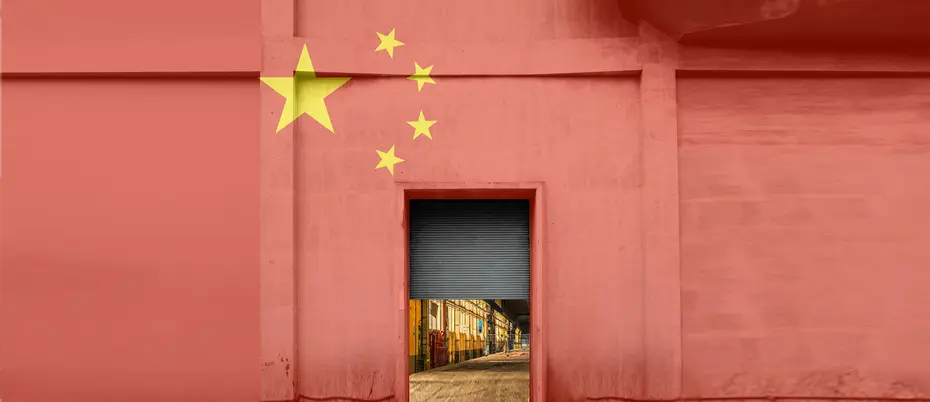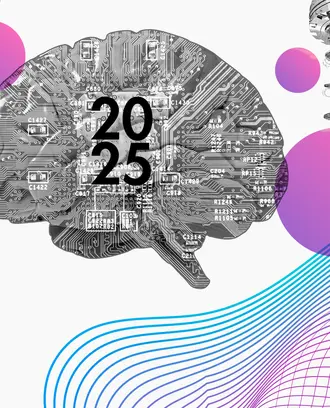Economy
Beyond China’s COVID unrest, 3 important economic takeaways
China’s strict “zero-COVID” strategy has complicated the country’s economic recovery. A panel of experts explores three social and economic costs of President Xi’s policies.
Beyond the protests currently roiling China over its “zero-COVID" policy, experts see an economy under pressure as President Xi Jinping begins his third term.
With his autocratic style, Xi has broken the social contract between the Chinese Communist Party and its citizens, according to MIT Sloan’san internationally recognized authority on China and author of “Capitalism With Chinese Characteristics.”
In a December 1 opinion piece in the New York Times, Huang describes a strategy put in place after the 1989 protests in Tiananmen Square that preserved one-party rule while delivering growth, engineering innovations, and seeding entrepreneurial success. “Entrepreneurs were so busy making money that they could not even spell the word ‘politics,’” Huang writes.
In myriad ways, Xi has undermined that momentum. Even before zero-COVID, Xi began channeling bank credits to “chronically inefficient” state-owned enterprises, cracking down on activist groups, increasing censorship on social media, and levying fines and regulatory restrictions on tech juggernauts such as Alibaba, Tencent, and Baidu, Huang writes.
Despite those policies, and the deeply unpopular COVID lockdowns, China continues to be an economic and geopolitical powerhouse with a significant and growing impact on global business. With that in mind, Huang and a panel of China experts convened an MIT Starr Forum to delve into the economic, political, and policy impact of the events taking place in China. Participants included:
- Susan Shirk, a research professor at UC San Diego and the director of the 21st Century China Center.
- Taylor Fravel, a professor of political science and the director of MIT’s Security Studies Program.
- Arthur Kroeber, founding partner at Gavekal Economics and author of “China's Economy: What Everyone Needs to Know.”
- Jessica Chen Weiss, a professor of Chinese studies at Cornell University.
While Shirk, Fravel, and Weiss focused on foreign policy and political and military tensions, Kroeber led the discussion about where China’s economy might be headed in the short and long term. Here are three important economic takeaways from that conversation.
1. There could be a short-term economic rebound in China.
The Chinese economy is facing two big short-term problems: “zero-Covid,” which has had a negative impact on consumer spending, and a property crackdown, where the government stepped in and asked banks to stop lending too much money to property developers, Kroeber said.
“If these two policies are unwound over the course of the next year or so, there’s potentially quite a lot of pent-up demand within the Chinese economy, money that’s been building up essentially in household bank accounts without any way to be spent,” Kroeber said.
“And this could lead to a fairly significant economic rebound in the second half of next year or early in 2024. I actually think that in the short run, there’s certainly potentially a lot of capacity for things to recover,” he said.
2. In the longer term, expect slower growth.
China’s future growth prospects depend a lot on what kinds of economic policies China implements. Huang noted that Xi is a leader who values technology and science but is less focused on economic development. “The fact is that under Xi Jinping, the Chinese productivity performance has been terrible, despite all the investments that have gone into technology,” Huang said.
Related Articles
Kroeber agreed, saying that there is a long-term concern that the country’s development strategy is heavy on supporting tech-intensive industries but not strong on reforms to the financial system that would promote broader productivity growth.
“If you look at the overall macro policies, they focus too much on industrial policy and creating new targets for investment and not enough on market-oriented reforms that would improve the allocation of resources,” Kroeber said. Because of this, “it is very likely that China will grow at a much, much slower rate [than] in the past.”
On the positive side, China will likely produce a lot of electric vehicles and may be able to become competent in certain elements of the semiconductor supply chain and industrial automation, Kroeber said. “You’ll have these pockets of quite sophisticated technological competence, but that might not translate into very much economic growth or welfare gains,” he said. “That’s clearly the risk of the policy.”
A more diversified set of economic policies could result in China growing between 4% and 4.5% a year over the next decade, “which is a lot less than it’s grown in the past,” but comparable to the growth rate that Japan had in the 1980s, Kroeber said.
“I think a more negative scenario is that they don't do enough of these productivity-enhancing reforms, they just rely on the industrial policy, and then you're more likely to see growth settle down to more like a 2% to 3% zone for the next decade.”
That’s still “not terrible,” Kroeber said, “but I think the outcome there would be that China would wind up as a relatively slow growth economy that nonetheless has significant large pockets of highly adept technology industries.”
3. China needs foreign players to achieve its strategy.
Kroeber said that China is placing a lot of emphasis on technological self-sufficiency and self-reliance because Xi Jinping “sees the U.S. as fundamentally hostile and determined to retard China’s technological progress.” He noted that it is just as important that China “develop its own alternatives to technology that imports from the U.S. and its allies” because “this cannot be done without a lot of participation by foreign actors” and their “knowhow, capital and technology.”
Having foreign capital “is seen as a critical component of the technological upgrading scheme,” he said.
As far as U.S. - China relations, Huang said the U.S. has work to do as well, having under-invested in not just science and technology but in social science about China. “We need to understand the country more, even though it is getting difficult to do research on the country because of travel, because of the tensions between the two countries,” he said.
Watch the forum — Xi Jinping’s Third Term: Challenges for the United States




